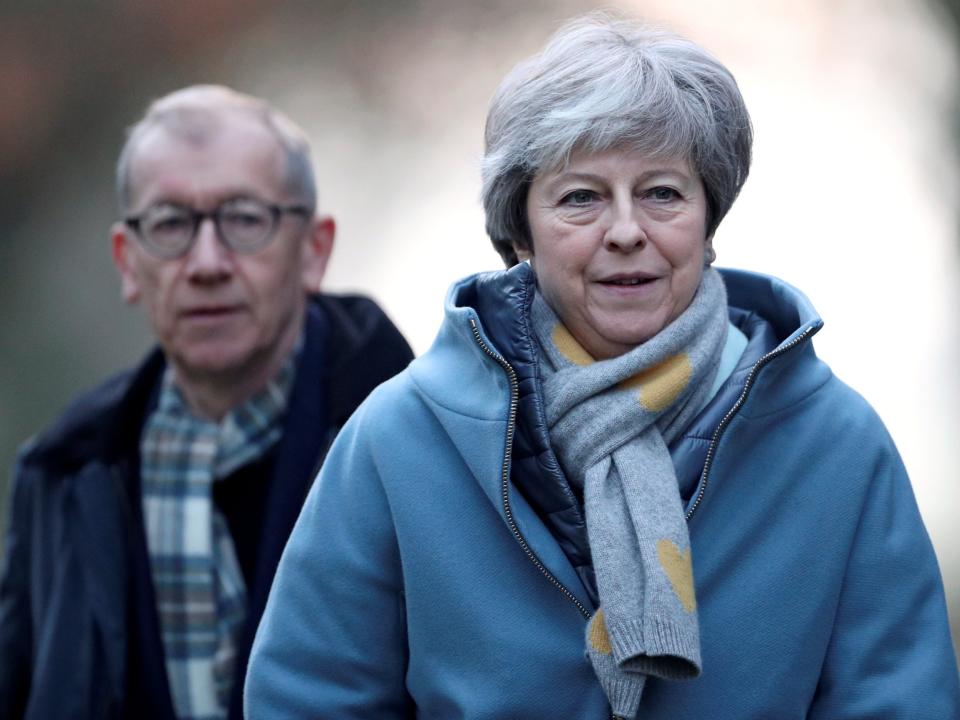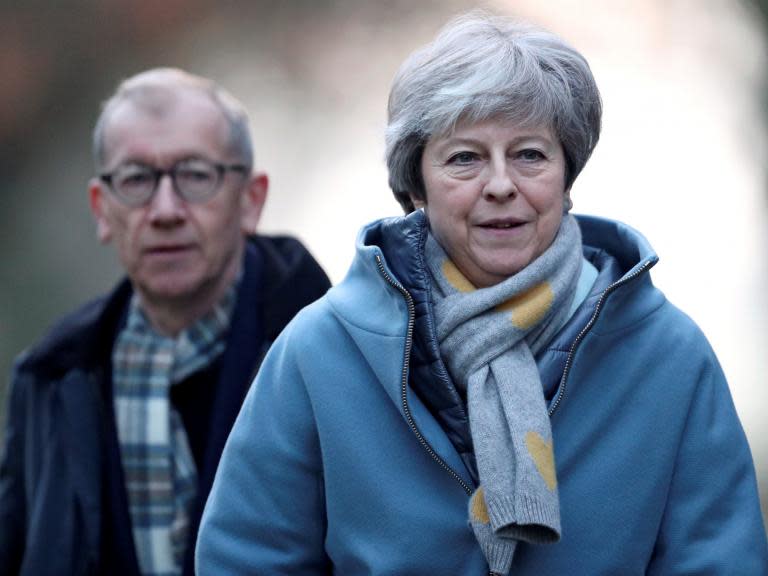Brexit: Theresa May seeks to bypass EU with Ireland treaty as No 10 labels MPs’ attempt to give parliament control ‘extremely concerning’
Theresa May will launch a fresh bid to win support for her rejected Brexit deal by trying to bypass the European Union and secure a bilateral Brexit treaty with Ireland, according to reports.
The move, which comes as No 10 expresses extreme concern at a backbench bid to give parliament control of Brexit, would see the UK try to convince Ireland to agree a plan for keeping the Northern Ireland border open after Britain leaves the EU.
Officials are said to believe that such an agreement could remove the need for the controversial backstop part of Ms May’s Brexit deal, which is the leading cause of Tory and DUP opposition to the plan and the main reason it was overwhelmingly rejected by MPs last week.
Ms May will update the Commons on Monday on how she plans to proceed after the crushing defeat.
Under the new proposal being discussed by No 10, the Sunday Times reports, the UK would try to convince the Irish government to negotiate a treaty that would remove the need for the backstop, which Brussels insisted on as an insurance policy to ensure an open border is maintained even if the EU and UK cannot agree a trade deal.
The arrangement would see the UK enter into a temporary customs union with the EU, and Northern Ireland agree to abide by European rules on goods until a subsequent deal was reached.
A Downing Street source said talk of a bilateral agreement with Ireland was "not something we recognise".
Liam Fox, the international trade secretary, appeared to confirm the plan, however, telling the BBC’s Andrew Marr Show: “We have to compromise on the backstop. If we’re to get the agreement through, we absolutely have to do that. The question is how we find a way to do that.”
Asked what such a compromise might involve, he said: “It’s getting an agreement with Ireland on an alternative mechanism to ensure that we don’t get friction across the Norther Ireland-Ireland border.”
Mr Fox said both the UK and Irish government shared a desire to preserve an open border in Northern Ireland, adding: “The question is can we achieve what the Irish government wants and what we want by a different mechanism.”
The government will “explore ways” to “find an alternative mechanism to ensure that we give the Irish government what they want, which is that we end up with no hard border”, he added.
Dublin moved swiftly to pour cold water on the suggestion.
Simon Coveney, the Irish foreign minister, wrote on Twitter: “As Brexit dominates news coverage, no surprise that some analysis today gets it wrong. I can reassure you the Irish government’s commitment to the entire [withdrawal agreement] is absolute – including the backstop to ensure, no matter what, an open border between Ireland + NI and the [Good Friday Agreement] are protected.”
And an Irish government source told the Sunday Times that a bilateral treaty “doesn’t sound like something we would entertain”.
Ms May’s chief of staff, Gavin Barwell, has reportedly told cabinet ministers that, if the plan fails, the prime minister could seek to secure more support for her deal by announcing she will step down in May.
Ms May briefed her cabinet on her next steps during a conference call on Sunday afternoon.
The latest twist comes as a cross-party group of backbenchers prepares to try to amend whatever plan Ms May puts forward in order to give parliament the right to seize control of Brexit.
The proposal, led by former attorney general Dominic Grieve, would remove the government’s power to choose what parliament debates and instead prioritise any motion backed by 300 MPs from at least five parties – significantly less than a Commons majority.
A separate plan being worked on by senior parliamentarians, including Labour’s Yvette Cooper and former Tory ministers Nick Boles and Nicky Morgan, would force the government to delay Brexit if a deal is not approved within weeks.
A Downing Street spokesperson said: “The British public voted to leave the European Union and it is vital that elected politicians deliver upon that verdict.
“Any attempt to remove the government’s power to meet the legal conditions of an orderly exit at this moment of historic significance is extremely concerning.”
In a sign of growing concern among Eurosceptics that the amendments could lead to Brexit being delayed or reversed, leading Tory Brexiteer Jacob Rees-Mogg, a vocal critic of Ms May’s deal, said it would be better to leave the EU on the terms of the prime minister’s plan than not leave at all.
Writing in the Mail on Sunday, he called on the Conservatives to “come together in the national interest”. He added: “If I had to choose between no deal and Mrs May’s original accord, I would have no hesitation of opting for no-deal Brexit, but even Mrs May’s deal would be better than not leaving at all.
“Even at this very late stage, I believe that with commitment and effort we can avoid such a choice.”

 Yahoo News
Yahoo News 

